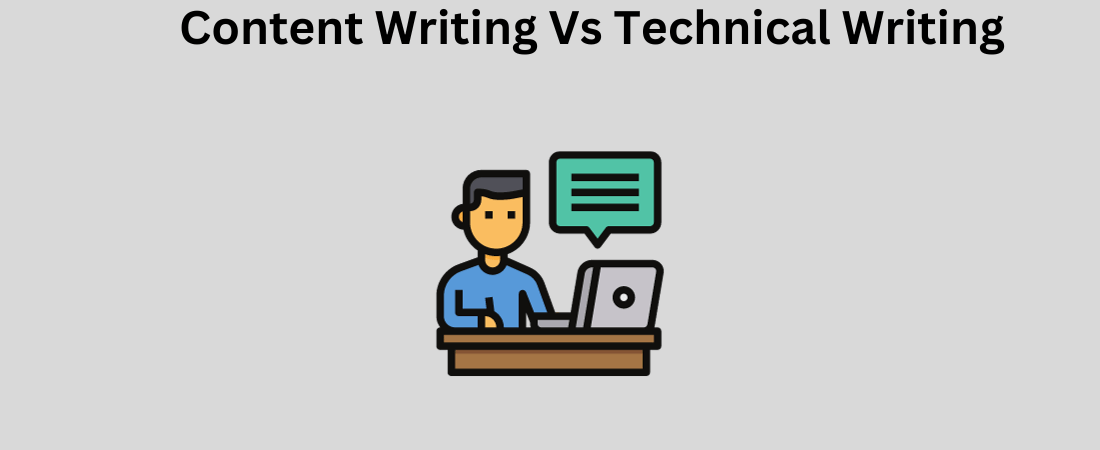In today’s digital landscape, effective communication is crucial for businesses to thrive. Two essential roles in this realm are content writers and technical writers. While both professions involve crafting written material, their goals, techniques, and target audiences differ significantly. This article will explore the key differences between content writing and technical writing, helping you understand which approach best suits your needs.
Defining the Roles
Content Writing
Content writing, also known as SEO writing or internet writing, focuses on creating engaging and informative material for a broad audience. Content writers aim to:
- Attract and retain readers’ attention
- Promote products, services, or ideas
- Improve search engine rankings through keywords and optimization techniques
- Drive traffic to websites and increase conversions
Technical Writing
Technical writing involves simplifying complex information and delivering it precisely to a specific audience. Technical writers are responsible for creating:
- User manuals and process manuals
- Technical reports
- Instructions and how-to guides
- Online help systems
- Training documentation
- API references
Key Differences
1. Purpose and Audience
Content writing targets a broader audience with the goal of engaging, informing, and persuading readers. Technical writing, on the other hand, aims to educate and guide a specialized audience through complex processes or systems.
| Content Writing | Technical Writing |
| Broad audience | Specialized audience |
| Engagement and persuasion | Education and guidance |
| Marketing and sales focus | User support focus |
2. Tone and Style
Content writers often adopt a more conversational and engaging tone, while technical writers maintain a professional and objective style.
- Content Writing: Persuasive, entertaining, and relatable
- Technical Writing: Clear, concise, and factual
3. Subject Matter Expertise
Technical writers typically require in-depth knowledge of the subject matter they’re writing about, such as specific technologies or industries. Content writers, while still needing to research their topics, may not need as deep an understanding of technical details.
4. Tools and Techniques
Both roles utilize different tools to accomplish their tasks:
Content Writing Tools:
- Text editors
- SEO tools
- Social media management platforms
- Keyword research tools
Technical Writing Tools:
- Help authoring tools (HATs)
- Single-sourcing techniques
- Documentation management systems
- Diagramming and flowchart tools
5. Structure and Format
Content writing often allows for more creativity in structure and format, while technical writing typically follows strict guidelines and standardized formats.
Skills Required for Both Roles
Despite their differences, both content and technical writers share some essential skills:
- Excellent grammar and writing abilities
- Strong research skills
- Effective communication skills
- Planning and time management
- Attention to detail
- Adaptability
Industry Applications
Content writers and technical writers can find opportunities in various sectors:
Content Writing Sectors:
- Digital marketing agencies
- E-commerce
- Media and entertainment
- Education
- Travel and hospitality
Technical Writing Sectors:
- Information technology
- Manufacturing
- Healthcare and pharmaceuticals
- Finance
- Energy and utilities
The Importance of Collaboration
Both content and technical writers often work closely with other professionals to ensure accuracy and effectiveness in their writing:
- Content writers collaborate with marketers, SEO specialists, and subject matter experts to create engaging and optimized content.
- Technical writers work with developers, engineers, and product managers to gather accurate information and create comprehensive documentation.
Choosing the Right Approach for Your Business
When deciding between content writing and technical writing for your business needs, consider the following factors:
- Target audience: Who are you trying to reach?
- Purpose: What is the main goal of your written material?
- Subject complexity: How technical is the information you need to convey?
- Brand voice: What tone aligns best with your company’s image?
Conclusion
While content writing and technical writing share some common ground, they serve distinct purposes in the world of business communication. Content writers focus on creating engaging, SEO-driven content to attract and persuade readers, while technical writers specialize in delivering clear, precise instructions and explanations to guide users through complex processes.
Understanding these differences can help businesses make informed decisions when hiring writers or developing their communication strategies. By leveraging the strengths of both content and technical writing, companies can effectively reach their target audiences and achieve their communication goals.
Remember, whether you choose content writing or technical writing, the key to success lies in clarity, accuracy, and a deep understanding of your audience’s needs.

